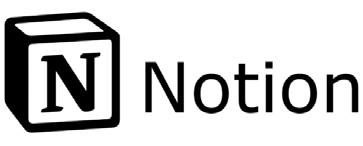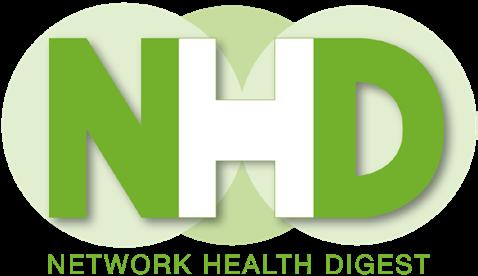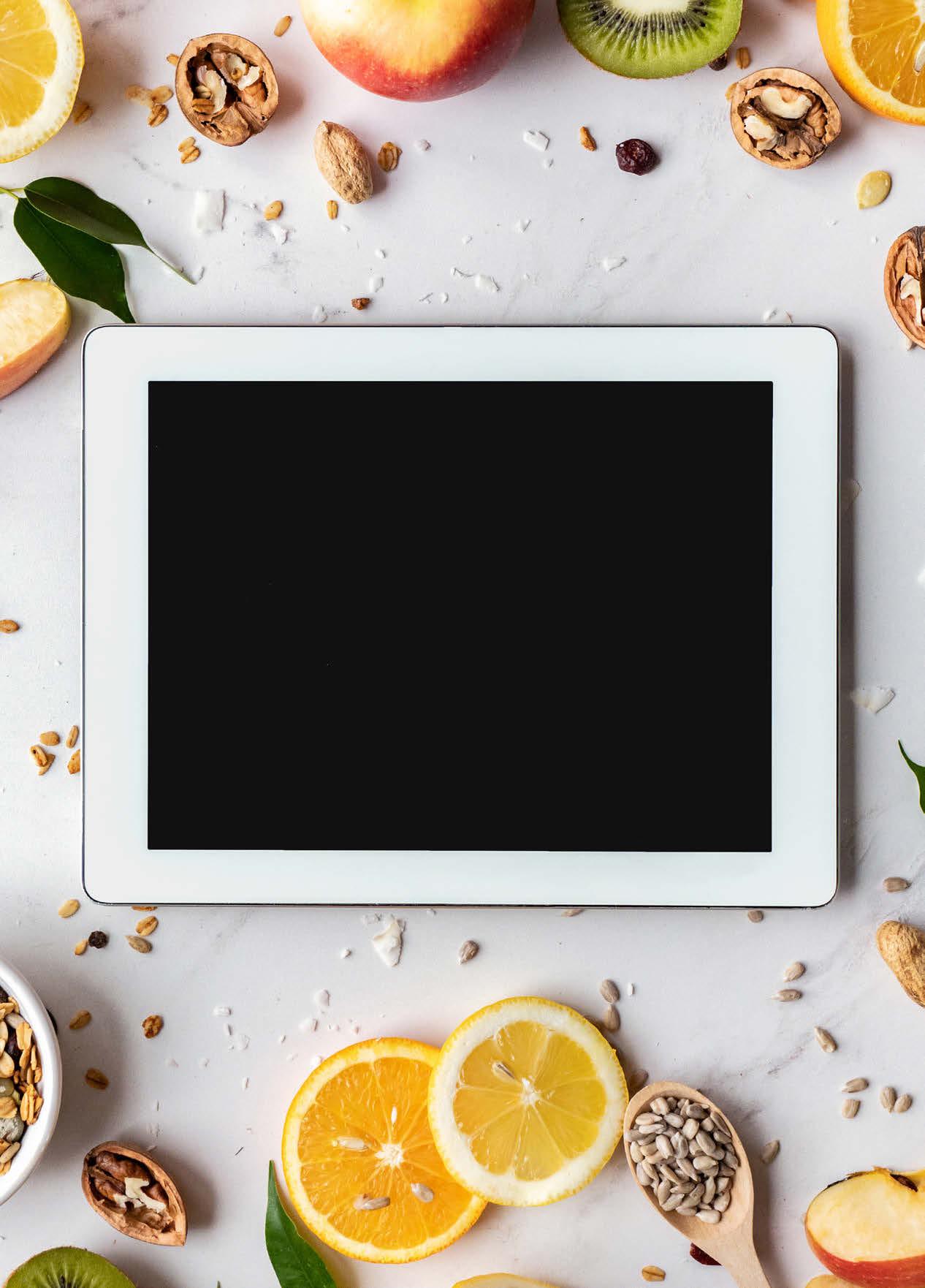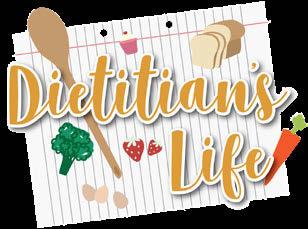
13 minute read
Student resources
Naomi Oxberry RD
Naomi graduated from the University of Nottingham as a Registered Dietitian and currently works across the National Health Service and the private sector. She has a Masters from The London School of Hygiene and Tropical Medicine.
Advertisement
REFERENCES Please visit: nhdmag.com/ references.html
RESOURCES AND ADVICE FOR STUDENTS
Taking a step back is often the best step forward. Whether individuals are studying Nutrition & Dietetics or are already working, those who are able to take some time to re-evaluate their approach and improve it are often the most productive.
When struggling at university, it is important to try to pinpoint exactly what it is that you are finding hard, in order to be able to find a solution. Perhaps you are struggling with the volume of work needed? Perhaps it is the content? Or maybe it is something unrelated to the degree and you are struggling with the university lifestyle. After asking students what they are most likely to struggle with, here I offer some advice on how to tackle key questions.
“I DON’T KNOW HOW TO GO ABOUT LEARNING” Learning is very individual, but there is some science to it. Research suggests the best way is to actively test yourself, known as active recall. Retrieving information from memory, relative to passively rereading notes, boosts learning.1 It improves retention of information,2 slows forgetting3 and facilitates the use of information in new situations.4 Although there are lots of ways to learn, active recall has been shown to be the best.
When coupled with ‘spaced repetition’, the efficacy of active recall is amplified. Spaced repetition is where one actively recalls the topic in question regularly and over time. Ideally, active recall of a specific subject would be progressively more spaced out.
Ali Abdaal has developed a great way to do this.5 He suggests making a spreadsheet and documenting when you go over learning material. He then recommends giving yourself a generic mark for how well you know that section. For example, if you go through your obesity questions and know everything, you can give yourself 5/5. If, however, you didn’t feel like you did as well as you would like, you can score lower (see Table 1).
Using a spreadsheet like the one shown in Table 1 means that you can see
Table 1: Example spreadsheet and score card for learning
Week starting Subject Score Subject Score Subject Score Subject Score
14.12.2020 Renal Disease 3 Obesity 5 Paediatrics 2 Metabolics 1 21.12.2020 Paediatrics 5 Metabolics 3 Renal Disease 5 Arthritis 4
Next Week Paediatrics TBA Metabolics TBA Arthritis TBA Obesity TBA



where you are improving. By ‘scoring’ yourself, you can see that the more times you go over something, the better your score is. Another benefit of using the spreadsheet is that by scheduling future weeks in, you develop a study plan that allows you to see how you are doing in preparation for any exams.
“HOW DO I DEAL WITH SO MUCH INFORMATION? IS THERE SOFTWARE OUT THERE TO MAKE THINGS EASIER?” Typing notes on a computer is a great alternative to handwriting notes, mainly because it uses fewer physical folders. There are lots of companies offering great software programs and apps to help us organise our notes and keep them in one safe place. Here, we will be naming just a few.
Anki
Anki is a flashcard software available for desktops and mobile devices. We know active recall is the best way to retain information and this certainly helps with that. You can make your own decks or import decks from other users and use time otherwise wasted on the bus to revise. However, the program does look ugly and this can put users off, especially at the beginning. But it’s only aesthetics and Anki quickly becomes user-friendly.
Notion
Notion is an online notetaking software. It allows you to organise your notes in your own way, which is really helpful to make specific sections easy to find. You can nest notes within notes, which is great for learning. Notion also has a ‘toggle’ function that makes testing yourself easy. Furthermore, the user can program ‘templates’ to structure content, or you can pick a template others have developed. Notion is free. The only downside I found is that although you can drop pictures or images in a note, it is difficult to edit them whilst in the software.
One Note
One Note is another notetaking software with a variety of functions. It’s from Microsoft and is also free to use. However, the user is less able to organise their notes in their own way, but on the flip side, this makes it easier to get your head around.
“HOW DO I BEST ACHIEVE A WORK-LIFE BALANCE?” Nothing is as important as your health and maintaining a good work-life balance is essential. A poor work-life balance impacts mental health, whilst those with a good work-life balance are more efficient, productive and motivated.
Here are a few tips: • Everyone has peaks and troughs in their day; be sure to become aware of when these times are for you. Use a time in the day when you might not usually be productive to take a break and do something you enjoy. • Before starting the year or term, write down a list of social or personal commitments that you would like to prioritise over work. For example, this could include ‘To make sure
I spend time with my family at Christmas’,

COMING IN THE APRIL 2021 ISSUE:
• Follow-on formula & appropriate use • Parenteral nutrition explained • Gastric disorders • Nutrition in Renal disease • Food first & beyond (ONS) • Adult food allergies • Public health strategies • How to make a career in dietetics ---------

Check whether you are eligible for a FREE subscription to Network Health Digest (NHD) at wwwNHDmag.com . . .
Don’t miss a single issue!
or ‘To make sure I make time for a run three times a week’. Putting this list on the wall behind your workspace can remind you of what’s really important when things get busy. Think about how you will fit this into your week. • Try to keep to scheduled working hours.
If work overruns, write a To-Do list for yourself for the next day and close the door on your working day. • Prioritise your time during the day; do the urgent and important tasks first. Next, complete the tasks that are urgent, but not important, followed by important but not urgent. The tasks that are neither important nor urgent, should be completed last. • If you are having a break, have a break.
Sometimes, when we relax, we can’t help but think about work. This renders the break ineffective. • If it is really difficult to fit everything in the day, don’t try to multitask, try to overlap.
For example, if you would like to see a friend and also squeeze in some exercise, could you and your friend go to that class together? This is a great way of making space in the diary.
“WHAT EXTRA-CURRICULAR KNOWLEDGE IS IMPORTANT?” This is a difficult question to give general advice about as it is specific to your goals. If, however, you are unsure of your goals and are happy to utilise your free time dabbling in nutrition, here are my personal favourite books: • Tim Spector is a professor of epidemiology who has produced a couple of insightful books including The
Diet Myth and Spoon Fed. These debunk common myths surrounding food and introduce how the role of the commercial food industry influences our eating habits. • Gut: The Inside Story of our Body’s Most
Underrated Organ is an easy-to-read book by gastroenterologist, Giulia Enders. In her book, she takes us through the gut system and touches upon common ailments and how to treat them.
Another great way to get your head around nutrition as a study topic, is to try to delve into current debates that come up regularly in our field. This will provide you with an understanding of hot topics and controversies, so that you may be better prepared for working in this area. Examples of current debates within nutrition include: • Is BMI a good reflection of health? Why do we use it? And in what circumstances should we perhaps not use it? • Are calories a good measurement of food? • How does our nutrition and diet impact climate change? • What is the best way to tackle the obesity epidemic? • Food deserts are found in the UK. How might food economics impact upon these and how might these impact individuals?
“WHERE CAN I GET ADVICE FOR FIRST-TIME BUDGETING?” Seventy-one percent of students revealed to the Save The Student Money Survey that they wish they’d had a better financial education before going to university.6 If you are keen to learn how to make your income stretch and meet all your needs, there are some great resources out there, such as: • MoneySavingExpert – a website for people of all ages, offering financial advice ranging from the best credit cards to saving after
Christmas. • Save The Student (STS) – the UK’s leading student money website, educating and supporting students in making their money go further whilst at university.
Apps are a great way to budget your income and conveniently keep track of your spending. There are lots out there, including Yolt, Cleo, Money Dashboard and Pariti. These apps will have pros and cons, so it is worth researching them to find the one that best suits your needs.
Doing a degree and living at university is not easy, especially during a global pandemic. Although there are lots of resources and advice available online, please also consider talking to someone from student support services within your university if you are struggling; they are there to help too.
Visit our website for more diary dates: www. nhdmag. com/events. html
ROYAL MARSDEN VIRTUAL STUDY DAYS
11th March 2021: Managing Supportive Medicines in Patients with Cancer 30th September – 1st October 2021: Swallowing and Communication
www.royalmarsden.nhs.uk/studydays
MATTHEW’S FRIENDS KETO COLLEGE 25th, 26th & 27th May 2021:
Day 1: Medical MasterClass on Medical Ketogenic Dietary Therapies Days 2 & 3: Dietetic MasterClass Approved for CPD by the BDA.
www.mfclinics.com/keto-college/ketocollege-uk-2021
NUTRITION SOCIETY SPRING CONFERENCE 2021 Gut Microbiome and Health 29th to 30th March 2021
www.nutritionsociety.org/events/spring-conference2021-gut-microbiome-and-health
BEHAVIOUR CHANGE SKILLS – PART 3 (NEW ONLINE) 29th – 30th March 2021
BCT trainer: Dympna Pearson and Dr Jackie Doyle www.ncore.org.uk


• Quarter page ADVERTISE to full page A JOB • Premier &
Universal placement listings • NHD website, NH-eNews Bulletin and NHD placements
To place an ad or discuss your requirements please call 01342 824073
RECIPE ANALYSIS: MAXIMISING ACCURACY On behalf of Nutrition and Wellbeing, Susan Church 23rd April 2021 – London
(Virtual version also available) Endorsed for CPD by the Association for Nutrition and the BDA www.susanchurchnutrition.co.uk/recipe-analysistraining
The NHD Blog – comment and opinion from our authors.
KEEP YOURSELF UP TO DATE, whether you’re at home, work or on the move. Our regular bloggers cover a range of nutrition-related topics, providing insight, tips and advice and thoughtful debate. There’s also an opportunity to join the conversation too; you can share your comments on the blog post and if you would like to submit a blog, do get in touch: info@networkhealthgroup.co.uk
Read the NHD Blog: www.nhdmag.com/nhdblog
LOSING TASTE AND SMELL WITH COVID-19
I had COVID over the New Year period. It was something I never expected to get, even though it was rife in the community at the time. I’m sure I picked it up at my local gym.

After waking with a temperature and headache, a positive lateral flow test confirmed my fears, which was further confirmed by a PCR test a day later. I suffered with a temperature, headache, achiness, fatigue and a very mild cough. Thankfully, I fully recovered in just 10 days.
The strangest symptom for me, however, was losing my smell and taste. It was bizarre to experience loss of those senses without a blockedup nose. I was lucky though, as both returned within about two weeks. My husband is yet to have his senses back to normal after a month.
My smell and taste started to go on around day five. It was subtle to begin with. My tea started to taste strange and whilst I was trying to recover by eating healthily again, I naturally chose more fruit; but all fruit suddenly tasted terrible. Apples were bitter and oranges were even worse!
In my dietetic practice, I used to work in Oncology and Haematology and so have advised people who are struggling with taste changes due to chemotherapy. As with many things, you never fully realise what something is like until you experience it yourself. The advice I used to give to patients came back to me. You have to find the foods you can tolerate and that taste ok, no matter what. You need to eat something to help with recovery.
So, I did just that. The problem was the only hint of taste I was getting was either salty or sweet. My cravings for crisps, chocolate spread and biscuits increased! I tried to eat my evening meals, but unless they were salty or My cravings for crisps, chocolate spread and biscuits increased!

spicy, I couldn’t really taste anything. I realised my usual healthy options of fruit, nuts and plain yoghurt were off the menu, as I simply couldn’t tolerate them. It was almost like being pregnant again! I simply didn’t want healthy food, yet I knew I needed to eat what was palatable, to provide adequate calories and nutrition.
I made sure I was having a banana daily as I could tolerate the sweetness. I chose more salty options for lunch, like bacon, eggs, beans and a bagel – plenty of protein – and I enjoyed it. I loved chocolate spread on toast too. As the days passed, hints of my taste slowly started to return. It was strange, as vegetables were probably one of the first things I could taste again and I could start having salads again too.
Losing my taste in particular made me realise the real challenges of finding something you can eat. Combine this with nausea and poor appetite, eating can be really tricky, and I can see how easy it could be to lose a lot of weight quickly without intervention. I know this experience will help me with my dietetic practice and although I am thankful it didn’t last long, I’m almost grateful to have experienced it.
Sarah Howe Specialist Dietitian
Sarah is an experienced NHS Dietitian specialising in the fascinating area of Inherited Metabolic Disorders in adults. In her spare time she enjoys helping her work colleague and good friend, Louise Robertson, run her blog 'Dietitian's Life'. She also loves fitness and spending time with her two girls.





